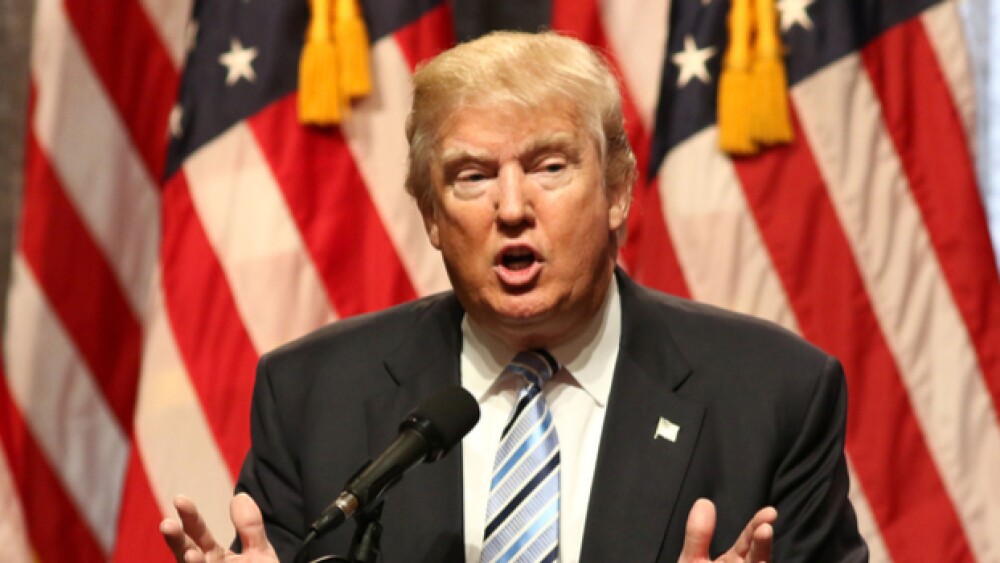President Donald Trump signed a bill into law yesterday that requires pharmaceutical companies to provide details of biosimilar deals to the Federal Trade Commission (FTC) for antitrust scrutiny.
JStone / Shutterstock.com
President Donald Trump signed a bill into law yesterday that requires pharmaceutical companies to provide details of biosimilar deals to the Federal Trade Commission (FTC) for antitrust scrutiny.
A biosimilar is a generic version of a biologic drug. Although a generic drug is a direct copy of a branded drug, a biosimilar is “similar” to a branded biologic. As such, it requires a clinical trial and review process closer to that of a new branded drug.
The new bill made changes to the Medicare Modernization Act of 2003 that oversaw generic drugs. BioPharmaDive writes it will “include biosimilars for FTC review of settlements between biologic and biosimilar developers. Additionally, the new law will ban so-called gag clauses that prevent pharmacists from telling patients when paying out-of-pocket instead of through insurance for drugs would be cheaper.”
Industry watchers don’t believe the law will have a major impact on the drug industry, but it will make it clearer on what the FTC’s role is in reviewing biosimilar deals. Michael Perry, a partner at law firm Baker Botts and former counsel to the FTC’s Bureau of Competition Director from 2015 to 2016, said in an October 4 talk, “It gives them the green light from the get-go to look at any settlement without having to go through the usual hoops they have to go through.”
The House of Representatives passed the Patient Right to Know Drug Prices Act on October 6, which was signed by the President yesterday. The Senate passed the bill in late September 92 to 2. It was introduced in March 2018 by Senators Susan Collins (R-Maine), Clair McCaskill (D-Missouri), and Debbie Stabenow (D-Michigan).
The Center for Biosimilars notes, “In addition, the bill also addresses pay-for-delay agreements by requiring patent litigation settlements between a reference product developer and a biosimilar manufacturer to be submitted for review by the Federal Trade Commission (FTC) and the U.S. Department of Justice. Other legislation to address such pay-for-delay deals are also moving forward in Congress, as key components of the Biosimilars Competition Act of 2018, put forth by Congressman John Sarbanes, D-Maryland, were also passed last month by the House.”
The Congressional Budget Office (CBO) believes the Biosimilars Competition Act of 2018 will save about $100 million from 2019 to 2028.
The U.S. Food and Drug Administration (FDA) has been developing a Biosimilars Action Plan. FDA Commissioner Scott Gottlieb noted in July that less than two percent of Americans use biologics, but they account for 40 percent of total spending on prescription drugs. He glosses over the fact that these are generally newer, cutting-edge products. They do represent 70 percent of the growth in drug spending from 2010 to 2015. Which is at least partly why the government and payers want to bring their costs down.
The U.S. has lagged behind Europe in approving biosimilars, with only 11 approved in the U.S. compared to about 25 in Europe. But of the 11, only three are currently available in the U.S. because of these pay-to-delay tactics.
In July, Gottlieb stated, “It’s anemic because consolidation across the supply chain has made it more attractive for manufacturers, Pharmacy Benefit Managers, Group Purchasing Organizations and distributors to split monopoly profits through lucrative volume-based rebates on reference biologics—or on bundles of biologics and other products—rather than embrace biosimilar competition and lower prices.”
It remains to be seen if the additional scrutiny by the FTC and the Department of Justice will change the slow penetration of biosimilars in the U.S. market.





